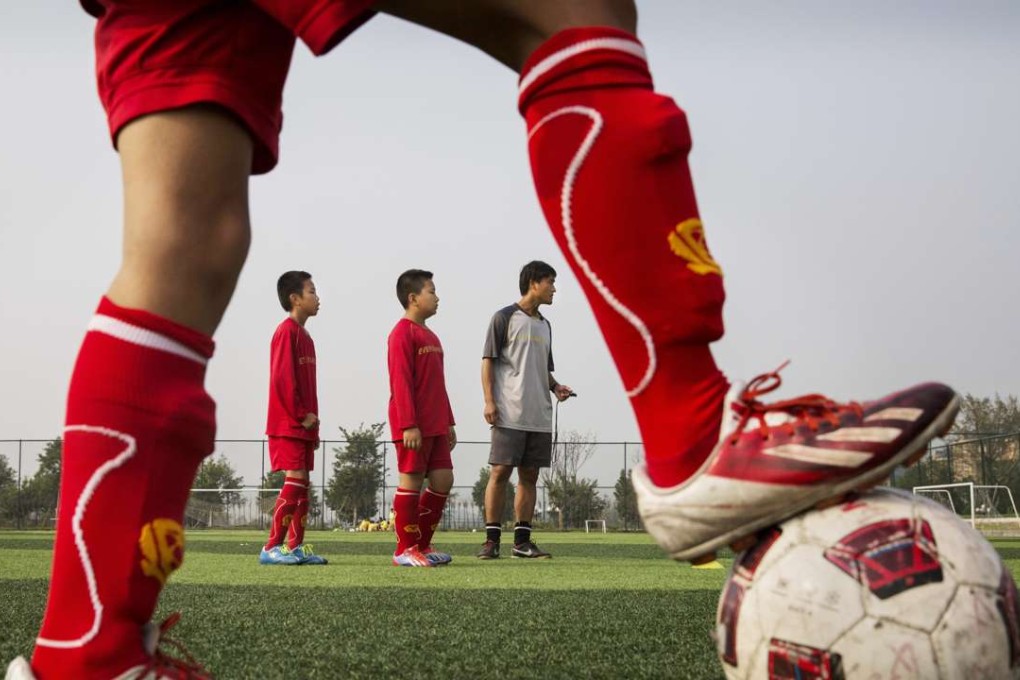China opens door for world’s top soccer clubs to set up schools in Guangdong free-trade zone
Province looks to groom soccer stars to realise President Xi Jinping’s dream of making China a superpower in the sport

Guangdong is tapping into President Xi Jinping’s soccer dream by calling for soccer schools to be established in collaboration with international clubs in its free-trade zone.
Speaking at a press conference held to celebrate the first anniversary of Guangdong Pilot Free-Trade Zone, Chen Guangjun, deputy director general for the zone’s general affairs office, said he would like to step up collaboration with Spanish and Portuguese-speaking countries in sports and cultural exchanges.
“Real Madrid has already set up a soccer school in [Guangdong’s Qingyuan], and we are also in talks with Brazil’s Gremio for a similar initiative,” Chen told reporters.
New school strategy to realise China’s dream of becoming global soccer superpower
With Zhuhai’s Hengqin – part of Guangdong’s free-trade zones including Nansha in Guangzhou and Qianhai in Shenzhen – being promoted as a global tourism destination, Guangdong plans to step up collaboration with nations known for their strong soccer traditions and sporting culture.
“I hope Hengqin and Guangzhou will set up more soccer schools and organise more competitions,” Chen said.
His comment came a week after the government announced an ambitious plan to produce one of the world’s strongest soccer teams by 2050.
The initiative has been followed by various soccer developments, including Guangzhou Sport University’s announcement of plans to open a soccer college that will offer a four-year bachelor’s degree majoring in soccer education.